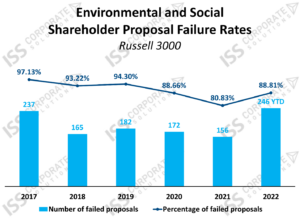A hot new front is opening in the timeless fights for corporate control between supine boards and activist shareholders: advance notice bylaws that impose onerous conditions on stockholder nominations of new directors.
The battle is joined by an extreme version of such bylaws adopted by the board of Masimo Corporation, a $7 billion medical device maker led by billionaire founder Joe Kiani, after Politan Capital, a hedge fund run by veteran activist Quentin Koffey, disclosed an 8.8% stake, and Koffey expressed interest in board representation.
The Masimo bylaws purport to require that investors seeking to nominate directors to its board disclose the identities of any limited partners and plans for nominations at other companies. The board-adopted bylaw would erect a formidable obstacle to Politan’s efforts to restore discipline to a company plagued by a classic corporate problem: a powerful founder-CEO who built a once-strong company uses its cash to fund wayward corporate projects and lavish personal perks from private security to private jet travel.
The Masimo bylaw would fortify a governance battlefield already stacked against Politan, as Masimo has a staggered board as well as a poison pill. What’s more, Kiani is both chair and CEO and there is no lead independent director, and a golden parachute pays Kiani nine-figures if two of the five incumbent directors are voted out.
But even amid that arsenal, the Masimo advance notice bylaws, which are now being litigated in the Delaware Court of Chancery, resemble the “nuclear option” and offers a case study in how rational governance devices can become unduly weaponized. Historically, advance notice bylaws were intended to serve the valid purpose of administration of shareholder meetings. Without them, chaos would result from stockholders unexpectedly nominating directors from the floor. Order was maintained by requiring notice 30 days in advance.
Over time, however, incumbents gradually increased the length of the required notice, from 60 days, then 90, then 120, and several companies today demand notice over six months before an annual meeting. The required content of the notice has also expanded from originally naming the names to now calling for each nominee to complete an extensive questionnaire and for them and the nominating shareholder to provide all the information that would be required by federal securities law in a proxy statement filed with the SEC.
State corporate law grants companies and corporate boards leeway in this area, but it’s not unbridled. Delaware courts, for instance, permit an incumbent board to pose reasonable questions of nominating shareholders and nominees to assist it in preparing disclosure materials and making recommendations on how to vote.
But they draw a red line at attempts by boards to interfere with the stockholder franchise, which includes the right to vote and the right to nominate. Courts police against subterfuge by rejecting advance notice bylaws purporting innocently to require relevant information but having the clear purpose and certain effect of depriving shareholders of the opportunity to nominate directors of their choice and exercise their right to vote for directors.
Within this framework, the Masimo bylaws almost certainly cross the line, particularly in its call for a nominating shareholder to disclose its limited partners. After all, it is standard, valid practice for investment funds of all kinds to hold the identities of their investors in the strictest confidence. Limited partners opt for that status for many business and legal reasons and investment advisors have similar interests in protecting their investor lists.
Ask any investment fund—from private equity firms such as Apollo to public index funds such as BlackRock—for a list of their top twenty investors and you will be told no. Such investment funds and advisors routinely pledge such confidentiality to their investors, often formally expressed in covenants in their investment contracts. Conditioning a shareholder director nomination on disclosing its investors is therefore tantamount to denying them the opportunity to nominate anyone.
Nor does there appear to be any value to the company or its other shareholders in requiring the disclosure of a nominating shareholder’s limited partners. Limited partners are passive investors by business definition and legal classification. They do not control the nominating shareholder’s investments or strategies. Those choosing to operate differently would be obliged to make full disclosure of the facts under existing federal securities laws, making such advance notice bylaws redundant.
Equally prohibitive is conditioning such nominations on the disclosure of planned director nominations at other companies. That calls for revealing investment plans and strategies that are invariably the product of substantial, costly research and analysis. Maintaining the confidentiality of such efforts is essential to the successful deployment of capital. Compelling its disclosure undermines the business model, providing a Draconian deterrent to nominate a director. Again, it is not obvious why such other investments would generally be important to a company’s other shareholders.
A law professor known for his strong opposition to activist investors recently published an article lamenting that poison pills, another formidable defense, have proven ineffective at stopping activists and extolling the Masimo advance notice bylaws as the new weapon of choice that just might do so. The argument proves the point: bylaws such as the Masimo board adopted are Draconian showstoppers.
Advance notice bylaws will continue to be used in battles for corporate control. But they cannot be used to end them. The front is just heating up.
